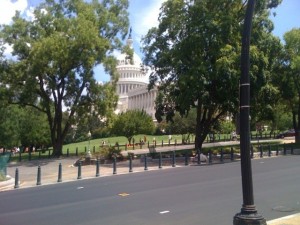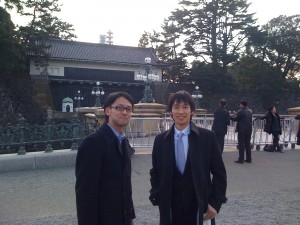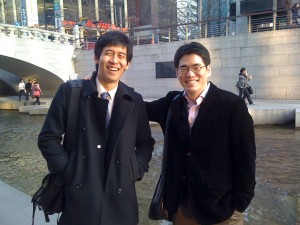Not long ago I wrote about Wade Hsu, a recent grad who was honored as having done the best undergraduate physics work in the country. This past weekend Dana Royer, an assistant professor in the Earth and Environmental Science department received the Donath Medal from the American Geological Society. The award recognizes young scientists (aged 35 or younger) for outstanding original research marking a major advance in the earth sciences. I’m delighted to cite the press release announcing the award.
“Dana is a true innovator who successfully tackles extremely important questions in paleoclimatology and paleoecology, in part using paleobotanical proxies calibrated with a remarkable series of careful modern analog studies,” said Peter D. Wilf of Pennsylvania State University in nominating Royer for the honor. “He often connects the deep-time climate and CO2 record to the present day in highly societally-relevant ways that are widely cited in the ‘modern’ climate change literature.” Wilf also said, “Without Dana’s contributions we would know much less about Earth’s climate history and its great importance to today’s world.”
“In the rapidly developing field of plant paleoecology and ecophysiology, Dana Royer stands out in terms of innovation and sheer breadth and depth of knowledge. He is truly an emerging leader in the geological sciences,” said Leo Hickey, professor of geology and Curator of Paleobotany at Yale University.
Dana is also part of our new College of the Environment. He describes his research as exploring “how plants can be used to reconstruct ancient environments and the (paleo-) physiological underpinnings behind these plant-environment relationships.” This basic research about our deep past is very relevant to understanding our contemporary ecological context. Isn’t that what our scholar-teacher model is all about? A dedicated teacher doing advanced research that opens onto pressing issues relevant to all of us.
And Dana received his award in Colorado, where a former Wesleyan geology student is the mayor of Denver and (today!) collecting votes in hopes of becoming the state’s next governor. How cool is that!






